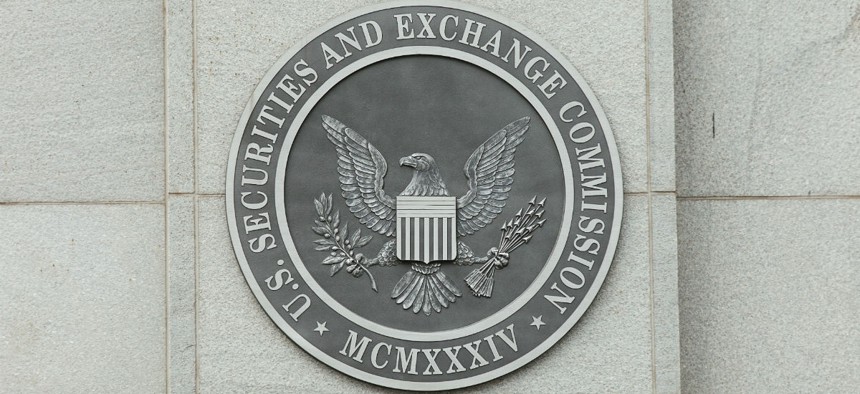Trump Nominates Jay Clayton to Chair SEC, Where Morale Is Improving
GAO survey finds increased trust but cites weak internal communication.
President-elect Donald Trump on Wednesday named his replacement for the departing Mary Jo White as chair of the Securities and Exchange Commission: mergers and acquisitions specialist Jay Clayton.
Clayton, a law partner at Sullivan and Cromwell, "is a highly talented expert on many aspects of financial and regulatory law, and he will ensure our financial institutions can thrive and create jobs while playing by the rules at the same time," Trump said in a statement. "We need to undo many regulations which have stifled investment in American businesses, and restore oversight of the financial industry in a way that does not harm American workers.”
Trump will also have a chance to pick a new chief for the Commodity Futures Trading Commission, whose chairman, Timothy Massad, on Tuesday announced that he will step down on Jan. 20.
Clayton, if confirmed to lead the five-member commission currently down to three, would inherit an SEC with internal communications issues but improving morale, according to a Government Accountability Office survey released on Tuesday.
“Employee views on the Securities and Exchange Commission's organizational culture have generally improved since 2013,” when GAO issued a far more negative report, the auditors said. “Employees GAO surveyed cited improved levels of morale and trust within the agency compared to 2013 and noted that SEC was less hierarchical and risk-averse.”
But the independent regulator “still operates in a compartmentalized way, and… there is little communication and collaboration between divisions,” the report said. GAO's assessment was based on interviews and a survey of managers conducted in the latter half of 2016.
GAO said SEC had addressed two of seven recommendations from 2013 but “faces added challenges in cross-divisional collaboration and hiring and promotion.”
Auditors credited SEC with setting up a workforce and succession plan, though it ignores some guidance in that area from the Office of Personnel Management, “such as a skills gap analysis for all SEC staff,” the report said. “As a result, SEC continues to lack assurance that all staff have the necessary skills.”
SEC managers have set up mechanisms to monitor how supervisors provide feedback to staff, recognize and reward them, and address poor performance, GAO said.
However, the agency has made little progress in improving cross-divisional collaboration. “While SEC has recognized some staff for collaborating, it has yet to set expectations for all staff to collaborate across divisions as needed or implement relevant best practices to break down existing silos,” GAO said. “As a result, SEC staff still report that divisions operate in isolation. Other than the SEC Chair's Office, which has competing demands on its time, no official has authority to affect the daily operations of the entire agency.”
GAO recommend that the SEC’s chief operating officer be given power to enhance cross-divisional collaboration and develop training for hiring to solve the skills gap problem. The SEC agreed with the recommendation on training but pushed back on the proposal to enhance the COO’s powers.
“The agency’s structure and the authority of the chair and deputy chiefs of staff enable them, in close coordination with the chair, to effectively pursue these and other changes to enhance coordination and collaboration throughout the SEC,” Mary Jo White wrote to GAO. “The report does not clearly explain how adding an extra layer of management will achieve better results.”
NEXT STORY: When America Last Had Two Presidents at One Time








